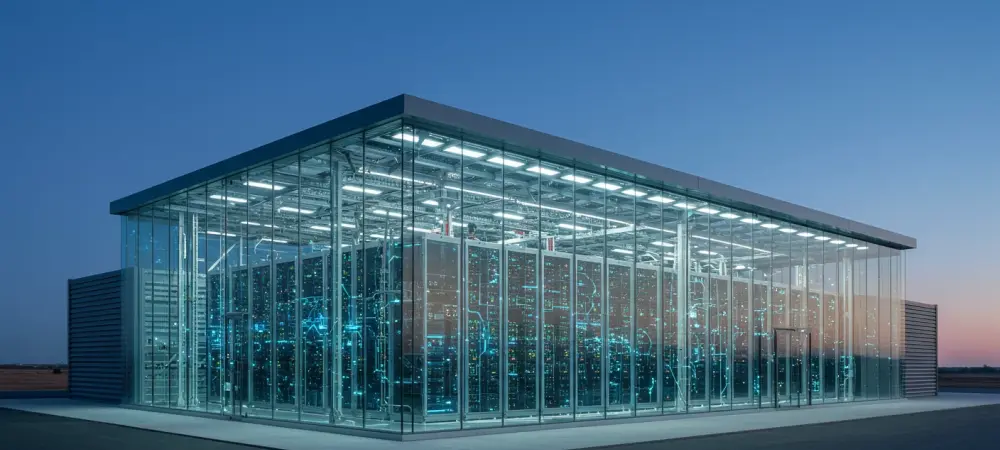Imagine a world where the backbone of technological innovation is fueled by an unprecedented financial surge, propelling data centers into a realm of explosive growth driven by artificial intelligence. This is not a distant vision but a tangible reality unfolding right now, as industry forecasts predict a staggering escalation in global data center capital expenditure (capex). According to recent projections, this spending is set to grow at a compound annual growth rate (CAGR) of 21 percent, reaching an astonishing $1.2 trillion by 2029. This figure marks a $200 billion increase from earlier estimates, underscoring the rapid pace at which AI infrastructure is reshaping the digital landscape. The surge is primarily attributed to investments in AI-specific technologies like GPUs and custom accelerators, which have emerged as a dominant force, accounting for roughly one-third of total data center budgets. This momentum signals a transformative shift, positioning data centers as critical hubs of modern innovation and economic progress.
Hyperscalers and Neoclouds Lead the Charge
A significant driver behind this monumental growth in data center investment comes from the industry’s leading players, with the top four hyperscalers—Amazon, Google, Meta, and Microsoft—projected to contribute half of the total expenditure by 2029. These tech giants are not merely spending but pioneering through vertically integrated solutions and custom architectures aimed at optimizing performance while slashing computing costs. Beyond these titans, a wave of other cloud providers, often termed neoclouds, is accelerating at an even more impressive CAGR of 39 percent, reflecting a broader industry trend of intensified focus on digital infrastructure. This momentum extends further, with both public and private sectors globally fueling the surge, anticipating the addition of 50 gigawatts of new capacity over the next five years. Such widespread commitment highlights how deeply embedded data centers have become in supporting the digital economy, with AI acting as the catalyst pushing boundaries and redefining technological capabilities across all sectors.
Beyond Hardware: A Holistic Investment Approach
The scope of data center spending transcends mere AI hardware, encompassing a comprehensive array of supporting infrastructure crucial for sustaining the escalating demands of AI-driven workloads. This includes investments in racks, general-purpose computing, storage, networking, and physical facilities, all of which form the bedrock of robust systems capable of handling complex tasks. Projections indicate that by 2029, nearly half of data center infrastructure expenditure will be directed toward AI training and domain-specific applications, marking a profound shift toward specialized computing needs. While the outlook remains overwhelmingly positive, potential short-term hurdles, such as a slowdown anticipated in 2026, loom on the horizon. Nevertheless, sustained long-term investments are expected to maintain growth through the forecast period, a perspective bolstered by economic analyses highlighting AI capex as a key contributor to recent U.S. GDP growth, often surpassing consumer spending. Reflecting on this journey, the industry has navigated challenges with resilience, setting a precedent for future innovation and strategic planning in the data center realm.

